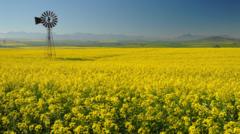A coalition of South African political forces has found itself embroiled in a fierce legal dispute over the recently enacted Expropriation Act, which empowers the government to confiscate land without compensation under specific circumstances. The Democratic Alliance (DA), the country's main opposition party and member of the ruling coalition led by the African National Congress (ANC), contends that this controversial statute is unconstitutional and undermines property rights.
The law has attracted international attention, notably from former US President Donald Trump, who reacted by freezing foreign aid to South Africa. Trump's claims, characterized by the ANC as a "misinformation campaign," allege that the government is already unlawfully seizing land from its citizens. The DA's challenge has highlighted long-standing grievances regarding land ownership in South Africa, where over three decades post-apartheid, majority ownership of farmland remains predominantly in the hands of white individuals.
In a pointed critique, the DA argues that giving the government unchecked powers to expropriate land mirrors practices employed during apartheid, which forcibly displaced indigenous communities. They emphasize the need to embed property rights within South Africa’s constitutional framework to avert future abuses.
South African President Cyril Ramaphosa, who signed the Expropriation Act into law despite the DA's cautions, stated that land seizures without compensation would only occur under exceptional conditions, such as for public purpose uses after exhausting alternative acquisition methods. The ANC has sought to reassure the public and international community that no current land grabs are taking place, calling Trump's executive measures a misguided response to a complex domestic issue.
As tensions rise, the ANC plans to send diplomatic envoys abroad to clarify the recent policy shifts surrounding land reform. Meanwhile, Trump's administration has indicated intentions to facilitate resettlement programs for South African farmers and their families as refugees, a move further stirring the pot of contention.
In conclusion, while the debate on land reform continues to evoke deep historical and social complexities, the clash of perspectives and interests reveals the challenging landscape South Africa navigates in its pursuit of justice and equity for all its people.





















